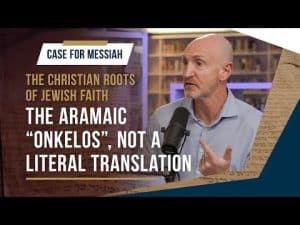
Whoever reads the Law of Moses might immediately discern that a strong similarity exists between the laws of Moses and the ancient laws of surrounding nations living around the people of Israel.
This goes to show that the laws of Moses didn't fall down from the sky but were based on existing principles and laws with which the people of Israel were already familiar. Such as: Mesopotamia's Code of Ur-Nammu, Sumerian's Lipit-Ishtar, Acadian's Ashnuna, Babylonian Hammurabi, The laws of the Hittites, and so on.
Why are these laws so similar to the Law of Moses (Torah)? For two reasons:
First, every culture on earth has to have authorities and administrators making rules and decisions, in order to deal with thieves, murderers or rebels… Or in other words, with the same human heart – a corrupted heart that loves to get revenge and rebel.
So man needs laws and boundaries. Otherwise if we just ignored these things and everyone just did as they pleased, we'd be stabbing one another over parking places.
The second reason is this:
God graciously met the nation of Israel exactly where they were at morally
Which was not a great place, it has to be said. And from there, He slowly pulled Israel out of their moral mud. Slowly, God lifted our people up from the low morality of the surrounding evil, idol worshiping cultures to a clearly defined morality that was on a higher level, by limiting behaviors and forms of punishment.
But together with that, God also started teaching Israel about forgiveness, grace and mercy: Concepts that were not so common back then.
For example, while the Egyptian and Hammurabi laws demanded to cut off body parts such as hands, tongues, noses, breasts or ears as punishment, the Law of Moses under similar circumstances, limited the judgment to a maximum punishment of no more than 40 lashes – in extreme circumstances.
But thanks to God, we have moved on from there. Very gradually, God presented new revelations to his people and the levels of morality and ethics rose accordingly.
It's important to understand that the perfect ideal for God was NOT the Law of Moses.
Those commandments were a temporary measure profoundly compromising God's ideal to much lower levels. Where do we find God's ideal? God's ideal of perfection appears in the first two chapters of Genesis before Adam and Eve rebelled. The Law of Moses was just the first step by which God could take us out of the moral mud we were in.
This was God's grace, reaching out to corrupted human hearts living in a dark and evil world. Therefore, God put boundaries in place limiting the ancient way of life in which rape, slavery and revenge were socially acceptable at the time.
Take for example the way in which God limited revenge.
As is the case in some cultures today, and more so in the past, it was normal to get vengeance. Joseph took out your eye? Get revenge! Take both of his! But the Law of Moses limited it: “An eye for an eye, a tooth for a tooth.” The law wasn't just teaching Israel about proportional measures, equality and justice, but it was also creating a limit – you can't take both of Joseph's eyes in revenge any longer. You got in a fight with Joseph again? And this time you knocked out his tooth? Good news! He is not allowed to kill you in revenge.
Another example is the way God restricts the treatment of slaves.
The people of Israel were used to being badly mistreated as slaves in Egypt so that's how we then treated our own slaves beating them without mercy sometimes even to death. God set limits so that whoever felt they must punish their slave, had to make sure the slave was in good shape to go back to work after a day. Again, these commandments, these laws of Moses are absolutely NOT God's ideal, NOT his standard of morality, but merely the first step to pull the people of Israel out of the moral swamp they were living in and around.
God's ultimate standard from the start was that we shouldn't take revenge at all and that there would be no slaves. But we'll get to God's ultimate morality later.
Step by step, God pulled our people up out of the mud, until 1500 years later in the New Testament, Jesus the Messiah presented to us once again the ultimate standard of God.
Now we'll use the institution of marriage as an example.
“Some Pharisees came to him to test him.They asked, “Is it lawful for a man to divorce his wife for any and every reason?”
“Haven’t you read,” he replied, “that at the beginning the Creator ‘made them male and female,’ and said, ‘For this reason a man will leave his father and mother and be united to his wife, and the two will become one flesh’? So they are no longer two, but one flesh. Therefore what God has joined together, let no one separate.” (Matthew 19:3-6)
Jesus explained what God's ideal was from the start: Marriage is a lifelong commitment in contrast with the Rabbinic Halacha (laws) you don't just throw your wife away because she's no longer beautiful to you as she was in her youth, or separate from her because she's ill. You are obligated to her, and she is to you, until death.
But the rabbis and Pharisees tested Yeshua:
“Why then,” they asked, “did Moses command that a man give his wife a certificate of divorce and send her away?” Yeshua replied, “Moses permitted you to divorce your wives because your hearts were hard (wicked). But it was not this way from the beginning. I tell you that anyone who divorces his wife, except for sexual immorality, and marries another woman commits adultery.” (Matthew 19:7-9)
Back then, men would divorce their wives for virtually any reason. The Torah took into account that the woman was in a weaker position than the man and so there's a need to protect her rights… especially in ancient times. So the Law of Moses set limitations on the husband resulting that divorce was just for unfaithfulness.
But God's original, perfect standard appears much earlier in Genesis 2, exactly the part that Jesus recited to the rabbis who were testing him:
“For this reason a man will leave his father and mother and be united to his wife, and the two will become one flesh.” (Genesis 2:24)
In God's eyes the ideal for marriage is that we change from being two different people and become one flesh.
Jesus explained to the rabbis, “Moses permitted you to divorce your wives because your hearts were hard (wicked).”
In other words, Moses' Law was a compromise on God's ideal due to the hardness of the human heart.
Jesus also rebuked them because they hadn't even understood the Law of Moses which only permitted divorce for adultery or unfaithfulness. But the rabbinic Halacha, as we all know permits a man to divorce his wife if her cooking isn't tasty enough, if the distance between her breasts is too large or any selfish reason, but that's another subject you can watch in more detail in our other video about the status of women in Jewish Halacha: www.oneforisrael.org/m016
Jesus was talking to all those who trample on and ignore the boundaries given in the Law on this matter as he said,
“Anyone who sets aside one of the least of these commands and teaches others accordingly will be called least in the kingdom of heaven.” (Matthew 5:19)
That is to say, if someone decides to ignore these boundaries and do whatever they want like throw out the wife because she got fat, or steal when no one's looking or stab someone over a parking spot in God's eyes, they're the least. They'll end up last.
Here, Yeshua shows us God's ultimate moral standard.
Dear friend – up till now you thought it was only forbidden to cheat on your wife? Yeshua said,
“But I tell you that anyone who looks at a woman lustfully has already committed adultery with her in his heart.” (Matthew 5:28)
Remember the laws about revenge?
“You have heard that it was said, ‘Eye for eye, and tooth for tooth.’ But I tell you, do not resist an evil person. If anyone slaps you on the right cheek, turn to them the other cheek also.” (Matthew 5:38-39)
In other words, you want to get revenge on someone who did you wrong? Better to forgive. Otherwise it will turn into an endless cycle of bloodshed and…the bitterness will eat you up inside. Darkness can't drive out darkness. You won't find peace by hating and getting your own back, but by forgiveness and grace.
The commandments of Moses are not able and are not supposed to change the heart, but to limit the selfishness and evil within it. The Law is like a fence that comes up against our sinful nature and limits our behavior. The Law prevents our evil inclination from harming others. Just like putting an animal with rabies in a cage to make sure it won't harm others. The cage is only temporary, to prevent the animal from harming others but the cage won't cure the animal. The antidote, the remedy, is the Messiah. The Messiah came to change and renew our hearts and when you have been cured you no longer need to be in the cage.
Enjoyed? Go even deeper with our new book “Reading Moses, Seeing Jesus“.














